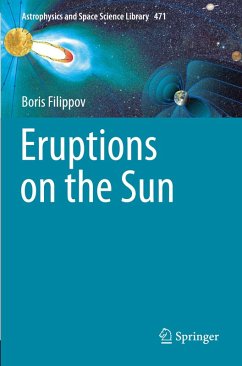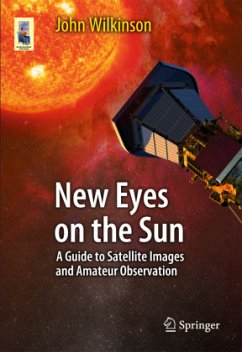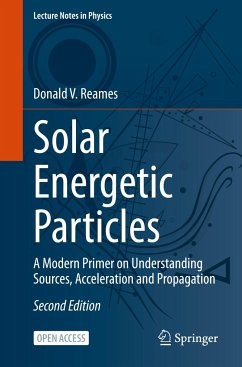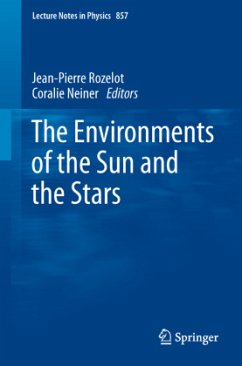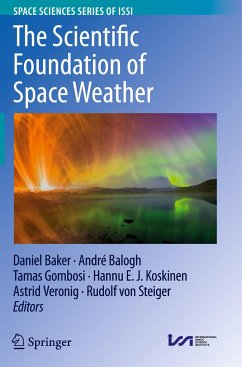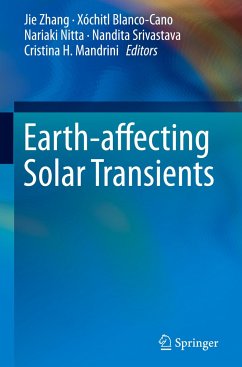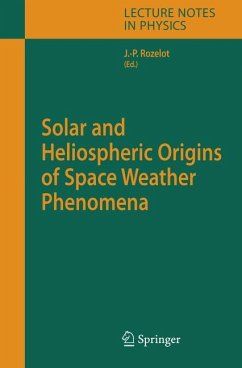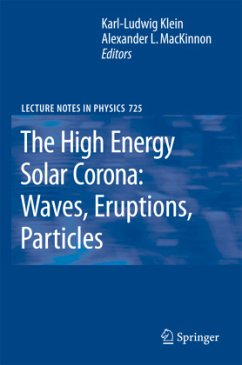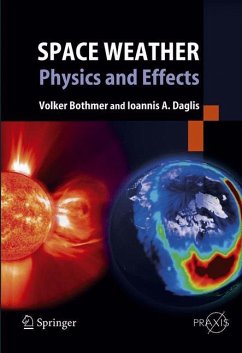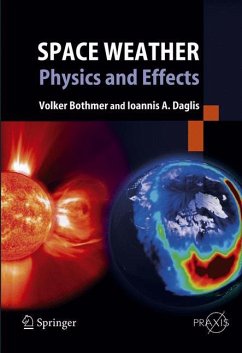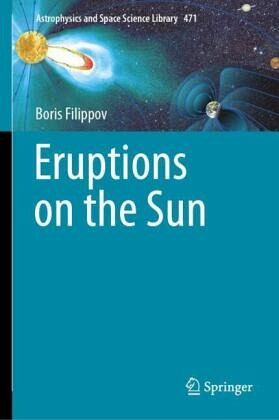
Eruptions on the Sun
Versandkostenfrei!
Versandfertig in 6-10 Tagen
113,99 €
inkl. MwSt.
Weitere Ausgaben:

PAYBACK Punkte
57 °P sammeln!
This book is devoted to eruptive phenomena on the Sun, the most dangerous sources of space weather disturbances. It discusses the latest achievements in this field, described in the scientific literature and obtained by the author himself. The initial chapters of the book give a brief description of the role of the Sun in the life and history of mankind, a general description of the solar interior and the atmosphere of the Sun, the causes and drivers of solar activity and its impact on the Earth's environment and human life. The book provides a detailed description of eruptive phenomena on the...
This book is devoted to eruptive phenomena on the Sun, the most dangerous sources of space weather disturbances. It discusses the latest achievements in this field, described in the scientific literature and obtained by the author himself. The initial chapters of the book give a brief description of the role of the Sun in the life and history of mankind, a general description of the solar interior and the atmosphere of the Sun, the causes and drivers of solar activity and its impact on the Earth's environment and human life. The book provides a detailed description of eruptive phenomena on the Sun, a review of observations of solar activity and theoretical ideas about the mechanisms and causes of a sudden release of energy in the solar atmosphere.
Much attention is paid to the solar magnetic fields, their characteristic features and measured values in the photosphere, the observed manifestations in the chromosphere and corona, and methods for extrapolating photosphericdata to the upper layers of the solar atmosphere. It is assumed that the magnetic field is the source of energy suddenly released during eruptive phenomena observed in the form of flares, prominence eruptions and coronal mass ejections (CMEs). Energy is accumulated and stored in the non-potential (associated with electric currents) part of the coronal magnetic field (free magnetic energy). This part of the field is the most variable and can provide energy for fast eruptive processes. CMEs, propagating through the interplanetary medium, significantly perturb it and cause the strongest geomagnetic storms when they affect the Earth's magnetosphere. The prediction of the arrival of the CME is the key problem of the entire space weather forecast. Thus, pre-eruptive conditions in CME source regions are of great importance. Solar prominences and filaments are considered the most likely progenitors of CMEs.
Most of the book is devoted to the description and analysis of their equilibrium and stability. It is shown that there are measurable characteristics of the proximity of the prominence to the instability threshold, which can be very useful in the problem of space weather forecasting. The book contains many illustrations and links to the latest scientific articles and reviews on the topic. It will be useful to researchers in the field of astrophysics, solar physics, geophysics, as well as PhD and graduate students.
Much attention is paid to the solar magnetic fields, their characteristic features and measured values in the photosphere, the observed manifestations in the chromosphere and corona, and methods for extrapolating photosphericdata to the upper layers of the solar atmosphere. It is assumed that the magnetic field is the source of energy suddenly released during eruptive phenomena observed in the form of flares, prominence eruptions and coronal mass ejections (CMEs). Energy is accumulated and stored in the non-potential (associated with electric currents) part of the coronal magnetic field (free magnetic energy). This part of the field is the most variable and can provide energy for fast eruptive processes. CMEs, propagating through the interplanetary medium, significantly perturb it and cause the strongest geomagnetic storms when they affect the Earth's magnetosphere. The prediction of the arrival of the CME is the key problem of the entire space weather forecast. Thus, pre-eruptive conditions in CME source regions are of great importance. Solar prominences and filaments are considered the most likely progenitors of CMEs.
Most of the book is devoted to the description and analysis of their equilibrium and stability. It is shown that there are measurable characteristics of the proximity of the prominence to the instability threshold, which can be very useful in the problem of space weather forecasting. The book contains many illustrations and links to the latest scientific articles and reviews on the topic. It will be useful to researchers in the field of astrophysics, solar physics, geophysics, as well as PhD and graduate students.





